Show transcript
(00:00) In supplements, no one cares about safety. They only care about this is the quality metric. This is the potency metric. And this is what the TikTok girl told us to take. Yeah, it's tough because we really just believe what social media tells us. They've really brainwashed us so well that we don't even realize it ourselves. (00:19) We are not getting the nutrients that we are supposed to be getting from food. You know, I can really sum it up into power of the mind. What you believe is what you feel what does it say about us as people that we trust tiktok over our actual doctors it blows my mind how we are in 2025 where we think intelligence is reached its peak but people are still acting really stupid so claudia look people want to know how do they cut through the the of wellness yeah question number one here is you're on your phone and you're scrolling and scrolling and swiping (00:51) and wellness which 97 tells you take rose flavored gummies without thinking bam credit card you buy it and i guess you don't look at her and you you see the blue hair and you think wow this is probably a credible source of medical information and then you know a few, a few weeks goes by and you're trying out these products. (01:06) But the question is, what should they have been doing? What should this person have thought about when this person was presenting them with a solution to whatever they're trying to find a solution to? Yeah, it's tough because we really just believe what social media tells us. They've really brainwashed us so well that we don't even realize it ourselves. (01:23) So you need to do the research and find out has this been backed by science have certain protocols been done to enable that this is safe for consumption is this just being um fronted because it's backed by someone's um motivation to make money off it you know so there really are a lot of things one needs to think of before making that payment. So then tell me this. Yeah. (01:53) I know what it's like to go through my feed and see health advice. What is it like for someone actually knows what they're talking about to go to their feed and see people recommend things? Like what do you, what is your feeling that you get when you see that yeah super frustrated because you constantly need to defend yourself it's it's as if you know your 10 years or 15 years of being a medical professional is worth nothing because all of a sudden you need to back why that influencer is talking nonsense versus what the actual science says so it can be (02:24) quite frustrating. And it feels like you constantly having to defend yourself as a medical professional. Influences or social media, they, they work because they work on your emotion. Yeah, it feels like the vibe is right. But when you come and you're like, look, here's the evidence, here's the data set, here's the this is boring. Yeah, People don't care about the boring. They care about the vibe. Exactly. (02:49) That's why Coca-Cola doesn't sell, it doesn't sell product. It sells happiness. Yes. And this is the problem because medical or supplements or peptides or things that are require scientific backing is, well, it's all about the vibe. Yeah, totally. And it's tough as doctors, no one gives you all about the vibe. Yeah, totally. And it's tough. As doctors, no one gives you a marketing course on how to, you know, market real science and real medicine. (03:13) I mean, it's all marketing techniques, right? Yeah, it's true. Yeah, it's tough. It's tough. But hopefully people are wise enough to just stop for a second before being convinced, before making a payment, thinking maybe I should just look this up. Maybe I should go and read something. (03:31) Maybe I should ask my friend who's a doctor or who's in the medical field before I commit to this. I think that's a really good segue into this next point. (03:52) What does it say about us as people that we trust TikTok over our actual documents? I mean, it blows my mind how we are in 2025, where we think intelligence has reached its peak, but people are still acting really stupid. I mean, we've got access to information. I mean, back in the day, people had to go sit in libraries to find information. We literally, in seconds, get information. Information is easily accessible. (04:05) So why are people still making silly decisions? to go sit in libraries to find information we literally in seconds get information information is easily accessible so why are people still making silly decisions and that that's what really annoys me you know in today's time you cannot actually afford or use the excuse that i didn't know yeah so yeah i think about a pain point though and i think if i had to defend the part the normal person that's on TikTok trying to find a solution to a problem, I've been to a doctor who told me, take this, it's going to help you. (04:32) And then it doesn't, you know, and you go another doctor and they have a conflicting opinion. These are both doctors. And obviously you don't know what their difference in education and experience or whatever it may be, but you see them as two doctors and they're the same. They're on the same pedestal. (04:45) Incorrectly, maybe. That also builds distrust. You know what I mean? And I'm trying to reconcile these two. How would you reconcile that? I think you need to understand that doctors are humans, too, and that doctors also bring in their own interests and personal values into things. So you can get a doctor who sticks to traditional medicine, who sticks to the book, sticks to science. (05:07) And then you can get a doctor who does that too, but brings in the human element and reminds themselves that, okay, I need to see this person as a whole. So I might have to bring in, combine some integrates of medicine into my functional medicine or my traditional medicine, because together, I can get a better result. (05:33) Some doctors think it's traditional versus functional or traditional versus integrative. But why is no one thinking traditional and integrative? Because they enhance each other, they help each other. And essentially, that's how you get to treat your patient as a whole mind, body, spirit, but your traditional doctor. And I think, I think in today's time, as our younger generation doctors are definitely a lot more open-minded. (05:53) We're not really sticking to the traditional medicine as we know it. We use it when we need to, in terms of everything needs to be backed by science. But then if you come to me and say, doc, this isn't working. Okay. Let me close the textbook. (06:16) Let me talk about how's your eating habits how's your exercise what's going on in your life what's going on at work what's going on at home let's delve into that and not just look at it as you not feeling well or does that make sense yes it does I think I think look I believe that 100 as well I think one needs to look at someone more holistically. Yeah, yeah. Because this is going to feed in so great for our next podcast, we speak about AI and health. (06:35) You know, whatever you prompt, that's the answer you get. Doesn't mean you've thought about this holistically, but I don't want to get into that. I will talk about that next time. So in my, my shopping basket, I've just bought some moon dust and some unicorn breath. I've taken it and I feel fantastic. I've been doing it for two weeks. I feel more energetic. (06:52) I feel vibrant. I'm living on cloud nine. But when I went to the doctor, he couldn't find any biomarkers that can validate how I feel. So my question to you is, is there a gap between data and how people feel? Or should I continue or should I stop? What should I be doing in this instance? You know, I can really sum it up into power of the mind. What you believe is what you feel. (07:16) So if you really believe your unicorn dust works, whether it does or doesn't, it's going to work for you. So people often neglect how powerful the mind is and how the mind can convince you. So look, as a doctor, we like to have things back what we say. So we will look at the biomarkers and the data. (07:40) But as an individual, at the end of the day, you make your own choices, whether you take what the doctor says or not, you know, that's up to you. So if someone came in and they said they feel really good though and you look at the data you're like okay well look maybe it's not perfect but like if you feel good just continue or are you what no I mean if it's not doing any harm yeah okay I mean if the biomarkers also show no harm then it's okay I mean if you're happy with it you feel good continue as soon as you don't feel so good come back and let's retest and see if maybe it's okay. I mean, if you're happy with it, you feel good, continue. As soon as you don't (08:05) feel so good, come back and let's retest and see if maybe it's affected something. Okay. That's my personal take. I don't think all doctors would act in this way, but if it doesn't hurt, yeah. I mean, this is fantastic because I really want to know this problem. I go to the doctor, I tell them I take these supplements and like the first thing i need to do is be like a lawyer and try to defend my yes my my system what is it with doctors being so anti supplements or anti convent so so traditional you know so anti what is untraditional i don't even (08:37) know what the opposite but like you know what i mean yes honestly i think that's a bit more old school i don't think the doctors of today are that hectic when it comes to no supplements are bad for you because essentially our body is made up of biochemical processes which need things like your vitamin b's magnesium calcium without those nutrients in the body your biochemical processes can't function anyway so it's wrong to say that supplements are worthless in my opinion yeah because the the fact (09:08) is the science is our body relies on these nutrients now with today's modern day time where we are super stressed basically chronically stressed processed foods that we're eating whether we like it or not you don't know if the apple is filled with hormones or not you know you think you're eating your fruits and bitch but we know that mass production and the food industry is pumping our food with steroids and hormones and pesticides and whatever so we need to take all of this into context and realize that we are not getting the nutrients that we are supposed to be getting from (09:40) food because of how food is processed today versus how it was many years ago when people were actually farming their own things in their backyard you know so we got in our supplements it because we actually can't trust the food we eat in today's world so if you're going to tell me as a doctor supplements don't work i actually disagree i think we do need them the real underpinning logic of how you make a decision in medicine is evidence-based medicine. Yeah. What is that? And can you give me a little (10:10) bit more information about how a normal person can interpret what that is? Yeah, sure. So evidence-based medicine is something that has been vigorously tested. So let's talk about supplements. Okay. It's been vigorously tested and has been proven to work. Now, you've got to look at things as where is this raw material coming from? Is this raw material safe? How is this raw material made or produced? So we're looking at, if we talk about mushrooms, we're looking at are they putting any additives into the soil? (10:43) Are they putting pesticides? Are they putting any growth hormones for these mushrooms um how are they um processed okay uh we need to look at the dosing are they if if you don't take an adequate dose or an underdosed supplement then there's no point you're just wasting your time and money um so we got to look at are these things being dosed correctly in order for it to be proven because obviously if it's underdosed it's not no point you're just wasting your time and money um so we got to look at are these things being (11:05) dosed correctly in order for it to be proven because obviously if it's underdosed it's not going to work then we need to look at its resilience its stability how does this product react in certain temperatures in lights um its exposure to microorganisms bacteria fungus viruses is it safe enough to consume? And then other things we also need to look at is bioavailability. (11:31) What is bioavailability? Your body's ability to absorb. So by that, I mean its ability to enter the bloodstream and then get absorbed into the tissue. Sometimes a medication or supplement tells you, okay, this is 500 milligrams, but your body's actually only taking in five milligrams. That's poor bioavailability. Again, it's a waste of your time, money, and it's not going to be proven to work. (11:55) So you really have to look at all of these things. I don't know, does that sort of make sense? I mean, obviously, it goes into a great amount of detail. This is just... Look, we're touching on the topic. This is the skeleton. What I'm trying to get across to people often, and maybe I don't do it well enough is that when you look at a supplement, people and supplements are such a good example, because they're unregulated. (12:18) Yes, in conventional medicine, you getting going to pharmacy and you're buying something from, from a pharmacy that's very different. This is not what we're talking about, that has been checked. Yes, we're talking about something that hasn't been. So you look at a supplement and you think, even if you put two next to each other, you think that this might be the same because they're called the same thing. (12:37) But have you validated that first of all, the species is the same? Have you validated that they've checked for safety? Have they been, you know, you said mushrooms and it's apt because we sell mushroom extracts. The one thing that people always forget is that they're bioaccumulators. They suck up what's in their environment. Exactly. So pesticides and heavy metals, even the cleaning materials that you use to clean the factory where you process them, gets sucked up into the raw material. (13:04) So when you go and you extract that, like a nutraceutical, you're getting a high potent dose of heavy metals which is exactly exactly and in supplements no one cares about safety they only care about yeah this is the quality metric this is the potency metric you know because potency is the keyword exactly no one cares about the safety and this is what the tick tock girl told us yeah exactly but it's so true people are really not thinking about these things the truth is though it is overwhelming and no one has seven hours to dissect this information before they can make a decision so we need to rely on something doctors aren't always available but (13:37) you do have places like i think about webmd and you think about maybe Healthline that have that have a very good authority on you know, an actual objective view of this ingredient and supplement and like, as a starting point before we determine whether that's the right brand or company to buy from. (13:59) Is that something you'd recommend someone do like look at those authority? for sure high authority areas yeah it's not the best but if you don't have any other option at that point in time then definitely okay so i think the key takeaway of this conversation really is just for someone to understand that there's so much science that goes behind actually having a good supplement that provides a therapeutic therapeutic use yeah this hopefully is like a starting conversation that provides a therapeutic use. (14:27) This hopefully is like a starting conversation that people can really take away and think about things more skeptically. Yes, for sure. In audit, this is a finance thing. In audit, when someone goes and they verify whether a company is lying to the public, the overarching principle is called professional skepticism so what that really means is whatever this company is telling you do not take it for face value it doesn't mean it's true look at the data yes and that's what we're telling people to do as well look at the data (14:57) before you make a decision yes for sure and remember it's your body you need to really think about what you're putting into your body.

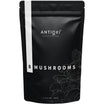
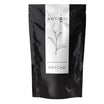
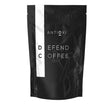
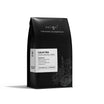
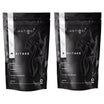
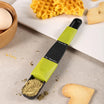

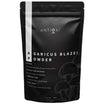
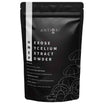
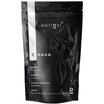
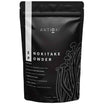
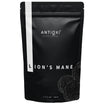
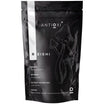
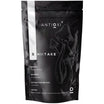
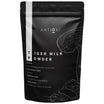
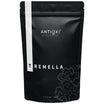
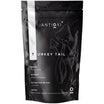

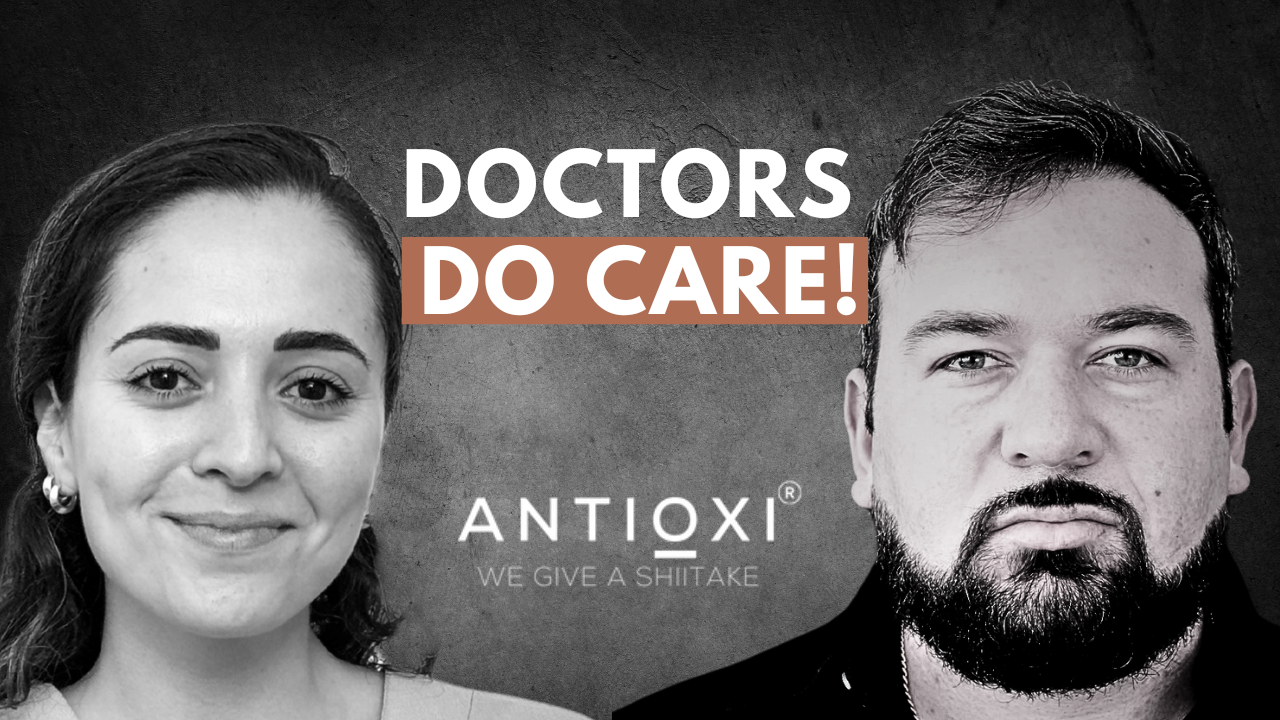

Leave a comment
All comments are moderated before being published.
This site is protected by hCaptcha and the hCaptcha Privacy Policy and Terms of Service apply.